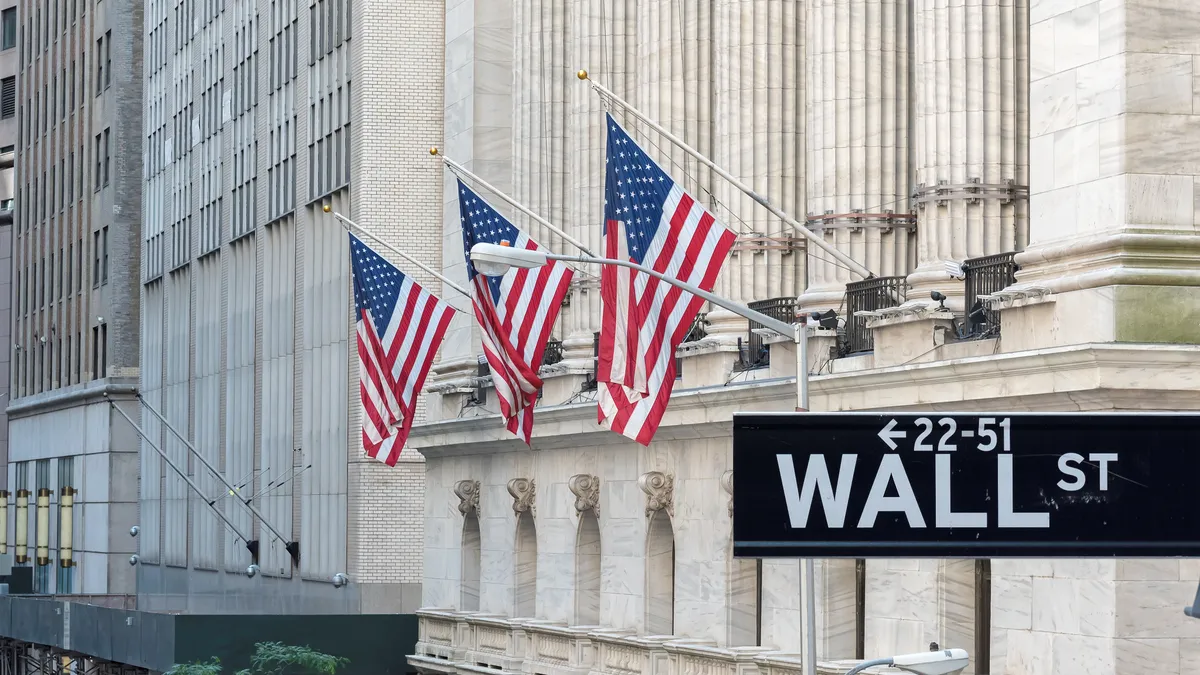Dive Brief:
- The largest 20 U.S. asset managers decreased their average support for environmental and social shareholder proposals that received otherwise significant support during the 2024 proxy season, while support among large European managers remains high, according to a recent report from Morningstar.
- For environmental and social proposals that at least 30% of independent shareholders supported, average support from the largest U.S. firms was 31% in the latest proxy season compared to 96% by the 15 largest European firms, per a report released Jan. 30 by the firm’s ESG research arm Morningstar Sustainalytics.
- “We are definitely seeing a widening gap – really a gulf to be honest – between asset manager support for environmental and social-related voting initiatives in the US versus Europe,” Morningstar Sustainalytics Director of Investment Stewardship Research Lindsey Stewart said in emailed comments to ESG Dive.
Dive Insight:
Morningstar’s report builds on its prior research into falling support for environmental and social resolutions it considers to have garnered "significant" support. The number of related resolutions to garner 30% of independent shareholders’ support has fallen in each of the past two years, and the average support for significant resolutions has fallen from 49% in 2022 to 39% in the most recent proxy season, according to a September report from Morningstar Sustainalytics.
However, this falling support appears to be exaggerated among the largest U.S. firms. Over the past five years, the largest European firms have supported an average of 95% of significant environmental and social proposals. For the largest U.S. firms, the five-year average stands at 43% support, with evidence of declines shown in both its 2024 proxy season support and its three-year average support (40%).
“While consistent support continues to exist for these initiatives in Europe and among US sustainable funds, we have seen a very consistent decline among major U.S. headquartered asset managers in recent years with the potential to accelerate as we enter the 2025 proxy season,” Stewart said.
Morningstar tallied 107 significant environmental and social proposals in the 2024 proxy season and 598 in the five proxy years prior. 2024 was also the first year that the largest U.S. firms had higher average support for social proposals than environmental proposals. Significant social proposals received 32% average support, down from 38% in 2023, while significant environmental proposals received 28% average support, down from 43%.
Support among the largest U.S. institutions for significant environmental and social resolutions peaked at 54% in 2021, according to the report, and has fallen in each of the proxy seasons since. The report found that 12 of the 20 largest U.S. firms decreased their support for significant environmental and social resolutions. That includes the Big Three of BlackRock, Vanguard — who supported zero environmental and social resolutions in 2024 — and State Street. Of the 20 asset managers observed, only Fidelity and Nuveen increased their support for such proposals year-over-year.
Average support for significant environmental and social resolutions remains higher among U.S. sustainable funds. Support among this group stabilized in the 2024 proxy season, after falling each of the two prior years. The gap between the largest U.S. funds and sustainable funds had been around 20-25 percentage points but increased to over 30 percentage points in 2024, as the nation’s sustainable funds supported an average of 62% of significant environmental and social proposals. Over the past five years, U.S. sustainable funds have supported an average of 68% of environmental and social proposals, also peaking in 2021 at 77%.
The growing evidence of declining support for environmental and social proposals from the largest U.S. investors comes as President Donald Trump is expected to take an adversarial stance on issues of importance to ESG investors.
The 2024 proxy season saw another year-over-year decline in support for environmental and social proposals, as Diligent Market Intelligence found that such proposals received an average of just 16.2% support. A record number of environmental and social proposals also went to a vote, though for the first time the rise has been attributed to an increase in anti-ESG filings, Morningstar previously said.
Diligent Market Intelligence Editor In Chief Joshua Black previously told ESG Dive he expects “we’ll see a lot of shareholder proposals” in the upcoming proxy season.
“We’re seeing [shareholder proposals] on all kinds of topics now,” Black said. “We’re probably going to see more, not political, but partisan groups involved in this. There will probably be some shareholder proposals around [diversity, equity and inclusion], and there will be some uncomfortable topics for companies.”











